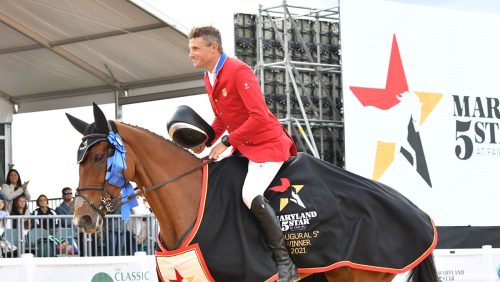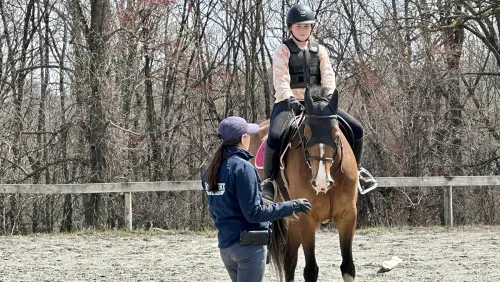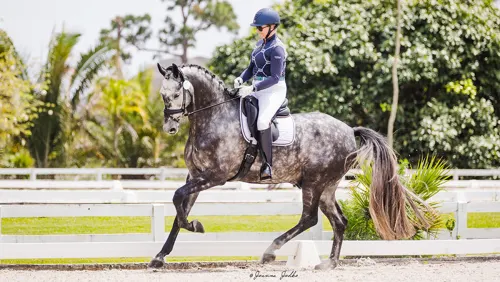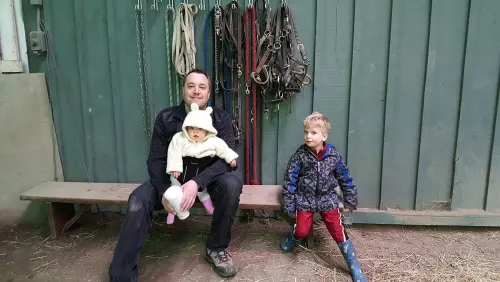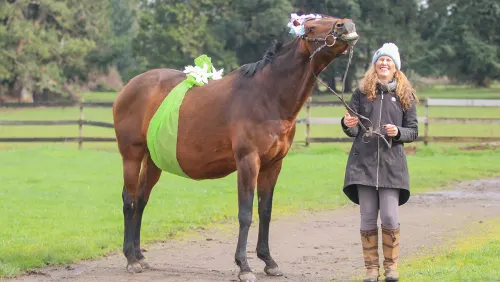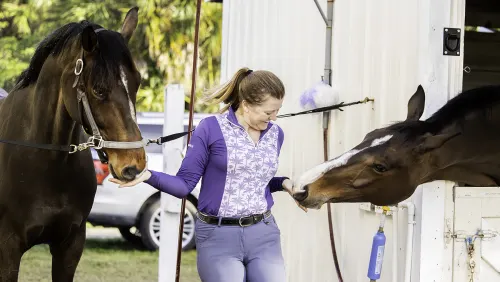At January’s U.S. Equestrian Federation Annual Meeting, participants talked extensively about “social license to operate.” The phrase refers to how the world views something, and whether people consider it acceptable in modern society. Google tells me the term originally developed in reference to extraction of natural resources—mining, an industry that is certainly plagued with environmental and human rights problems, and drilling for fossil fuels, for example.
But for sure it’s on our doorstep in the horse industry. And as I read the Chronicle’s coverage of the USEF meeting, I read this quote: “We might think racing and dressage are light years apart, but to most of the general public it’s horse sport,” according to equine behaviorist Dr. Camie Heleski. “For them there’s no difference between an FEI-regulated sport and a non-FEI-regulated sport.
And the killer: “The public prioritizes emotion over evidence.”
We’re living this well beyond the horse industry. Social media is full of passionate tirades about politics, about human rights, about religion, women’s health, the environment, parenting. In the dressage world I live in, the emotion-over-evidence phenomenon shows up from the folks who cry foul about classical versus competitive riding. And I certainly have plenty to say about whether leaving comments like, “Horse abuse! Your horse is a half-inch behind the vertical, which clearly means you’re the worst guy ever!!” is kind and productive. But we are at an interesting moment, in the horse business writ large. And we have to comport ourselves better, lest we be painted with the same brush as horse sports and related activities with real problems on their hands.
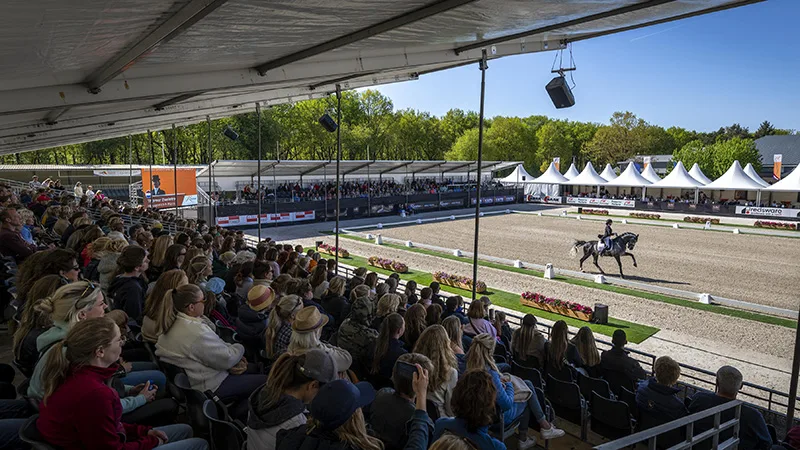
Watching live is no longer the main way most of us follow horse sport. Social media allows a sport’s finest moments to be disseminated to a broader audience, but also allows moments in time to be frozen, shared and critiqued in ways that are unfair to horses, riders and the sport alike, blogger Lauren Sprieser writes. Arnd.NL Photo
There are horse activities that animal welfare folks love to hate: horse-drawn carriages in New York City; Thoroughbred racing; slaughter. I take no opinion on these things (well, I have an opinion, and I’d even say an expert opinion, given what I do for a living, but this is not the point), but I think we can all agree that these are industries with actual problems. Modern pentathlon got to join the list after the Tokyo Olympics.
Here’s the problem: Joe Q. Public doesn’t understand the difference between horse racing and eventing, a sport that is working tirelessly to improve the safety of cross-country courses. They may not grasp the difference between a horse being loaded onto a double-decker truck to Mexico to die, versus a terribly timed cardiac event that takes the life of a beloved show horse. And so, when they see pentathlon change the sport and remove horses from the event after the Olympic debacle, and then when they log on to a dressage news Facebook page to see the comments section exploding with cries of abuse over a photo of a horse slightly too round, what is Joe Q. Public to think? How are they expected to know what’s real horse abuse and what’s a moment of imperfect dressage?
Months ago, a member of the Canadian team shared two photos on Facebook. One was the quintessential extended trot photo, beautifully parallel hind leg and front leg, nose out. One was a moment where the front leg looked wildly high and the hind leg looked wildly behind, and the neck was too round. The rider shared that they were screenshots from a video, taken a split second apart.
ADVERTISEMENT
I recently was perusing YouTube for inspiration from top riders, and hit pause when my phone rang. I caught Charlotte Dujardin in the downbeat of a canter pirouette—Valegro had only one front leg on the ground, his butt was in the air, and his neck was too round. As a still image, it checked every box on the armchair dressage critic’s list of cardinal sins. Except, obviously, that it was a totally ludicrous moment to pick to illustrate a stunning performance.
How does this tie into social license to operate? Xenophon didn’t have a smartphone. Klimke didn’t have Facebook. The colonels of our illustrious history of dressage sport didn’t have a social media beast to feed, to promote their sponsors’ products, to try and build followers. The news of the day was in magazines or newspapers, published no more often than daily. There are stunning photographs of the great masters of old, just as there are also stunning photographs of today’s heroes, but the imperfect moments of our equestrian forebears are largely lost to time.
We’ll never know if De Nemethy or Zettl would have been Facebook people, and I’m sure that there were loud-mouths criticizing them, or those around them, for what-have-you at the time. But whereas the armchair critics of old had no sycophants to screech to except those they could find in person, the internet has provided a mouthpiece for them to scream not into the void, but into the ears of all, and to mislead many into thinking that dressage can be perfect all the time.
Those leading the charge against the horrors of modern horse sport have the biggest influence on the least educated. Again, this isn’t unique to horse sports; listen to any group of men at any bar in America watching professional baseball and you’ll learn an awful lot about sports from guys who couldn’t do a hundred-yard dash if their lives depended on it. But baseball isn’t fighting for its life because the world thinks it’s unfair to the players who play it. There is a very real possibility that the horse industry could be.
As we work to do right by our animals and maintain our public image, perhaps we could restrain ourselves from eating our young on social media. Not only is the nastiness and vitriol around horse sport emotionally damaging to those trying to participate in it, but it is tarnishing our reputation with the broader world. And at a time where the demons being faced by other disciplines and horse-adjacent activities could carry over into all horse sports—and do real and irreparable damage to things like our participation in Olympic Games and recognition globally as a legitimate sport—we need to temper our emotions on social media, and be kinder to each other. Let’s not prioritize emotion over evidence. Let’s do better.
Lauren Sprieser is a USDF gold, silver and bronze medalist with distinction making horses and riders to FEI from her farm in Marshall, Virginia. She’s currently developing The Elvis Syndicate’s Guernsey Elvis and her own string of young horses with hopes of one day representing the United States in team competition. Follow her on Facebook and Instagram.






